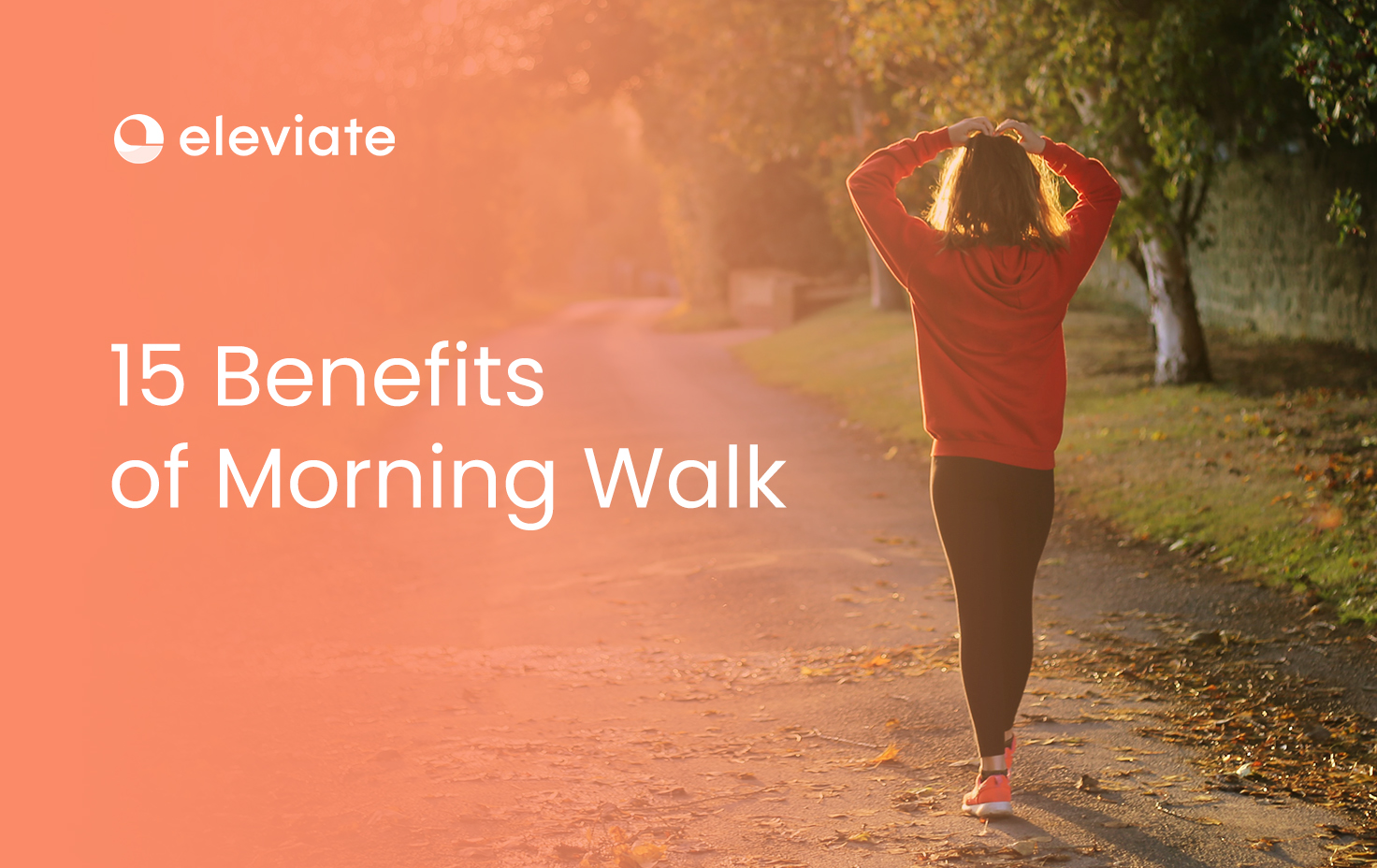What's your exercise regimen? How often have you promised yourself to start going to the gym and stay fit? Physical exercise can't be emphasized enough as you want to lead an active, healthy, and happy life. However, it is easier said than done, especially as you strive to keep up with the modern, fast-paced world. This is no excuse to neglect physical activity, though, especially since the gym isn’t the only means. Morning walks are a great strategy to supercharge your health and wellness regimen. Here are a few tips to get you started!
What is the best time for a morning walk?
Timing significantly impacts your progress. As you consider the best time for a morning walk, it can be tricky. This is more so if you like staying up late and sleeping in, affecting your morning routine flexibility. A practical measure to help you pick the right physical activity timing is having a schedule and sticking to it. At the same time, make sure that the walks do not impact your plans. Ideally, a morning walk starting between 5 AM – 7 AM is more effective since it is less distracting, the air is still fresh, and temperatures are at optimal levels. This time frame also allows you to adequately prepare for the big day ahead, ensuring the exercise endeavors don’t cause friction in your schedule.
What happens if you walk every morning?
The routine offers a lot more than just improving your overall health and productivity. If you struggle to wake up, a brisk morning walk can help you get going, improve your mood and energy levels, and make your day more productive. The walks also improve your blood circulation, digestion, muscles, joints, and mental health, to name a few, making it easier to enjoy the benefits of leading a healthy life. You could also consider regular morning walks for weight management.
How long should a morning walk be?
Consistency is a critical aspect of a productive morning walk routine. Scheduling the physical activity to last at least 20-30 minutes per session is an effective strategy. While the duration of this activity may depend on your overall health and schedule, sticking to the above-mentioned time period will deliver the utmost results.
Are you still wondering if early morning walks are a great addition to your exercise routine? If so, let’s look at the top health benefits of morning walks.
Benefits of walking in the morning
1. Good for your heart
How well do you care for your heart? Nowadays, lots of people adopt routine screening, a heart-healthy diet, and physical exercise to prevent heart disease. While walking is a low-intensity exercise, it is a good workout for your heart muscle. Routine walks cause a rise in the heart rate, which results in lower blood pressure. This improves your heart health while helping prevent high blood pressure and other cardiovascular diseases, such as stroke.
Improving blood circulation keeps your vessels in better shape and helps lower the risk of heart disease. This means arteries, for example, do not get easily damaged, which could lead to problems like high blood pressure. Such an issue extends over time, impacting your overall cardiovascular system. Those brisk morning walks improve blood circulation, which does even more than keeping your heart healthy. Blood circulation boosts your energy levels and mood, contributing to improved productivity throughout the day.

2. Improvement in mental health
How often do you take a walk to clear your mind, especially when feeling overwhelmed? Walking has numerous proven health benefits, and doing it first thing in the morning offers great results. Physical exercise improves mental health, a critical concern, especially as you age and deal with significant stressors. For instance, walking improves blood circulation, enhancing brain function, restoring your energy, and providing mental clarity. Breathing in the fresh air helps you reduce the risk of depression, anxiety, and other conditions, such as Alzheimer's disease. Thus, a brisk walk makes it easier to keep your brain in great shape for years.
3. Immunity boost
A weak immune function makes a person susceptible to numerous types of infection. You can hardly withstand a flu outbreak if your body is not well-equipped to fight viruses. Exercise helps you become more resilient and fight infections much faster due to increased blood flow, reduced risk of inflammation and stress, and strengthened antibodies. Additionally, physical exercise improves your body’s ability to prevent bacteria growth by rising the temperature during the workout.
4. Diabetes prevention and/or management
Diabetes is among the prevalent chronic conditions that require an active lifestyle to prevent or manage this condition. Brisk walking in the morning can help you maintain a steady blood sugar level and manage weight, which is a contributing factor that can lead to diabetes or worsen its symptoms. Maintaining a healthy weight cuts cholesterol and improves blood circulation, an area affected by diabetes. Besides helping you prevent or manage diabetes, morning walks can help you maintain cardiovascular fitness and overall health.

5. Improved sleep quality
Are you struggling to catch some ZZZs? The accumulated stress may affect your sleep cycle, especially if depression creeps in. Falling and staying asleep isn't always easy, especially with all the hassles and demanding schedules. Improving your sleep quality is critical as you strive to stay healthy, giving the body a much-needed break to self-repair. A morning walk is a moderate-intensity exercise that triggers your body to release crucial hormones, including serotonin. This allows you to enjoy quality sleep and avoid depression and insomnia.
6. Better moods
After quality sleep, you wake up in a much better mood, don’t you? Morning walks further enhance your mood as the body releases hormones that improve your mental and emotional wellness. For instance, dopamine helps decrease depression and stress levels. Moreover, improved blood circulation also helps your body and brain deal with stress. It positively impacts the HPA axis (hypothalamic-pituitary-adrenal), the neuroendocrine system regulating your stress response.
7. Enhanced energy levels
Do you wake up feeling tired? This could be due to depleted energy levels, which a morning walk can help you replenish. Do your best not to snooze your alarm, get to the nature trail nearby, and walk briskly. You'd be surprised by the energy levels you hit after giving your heart that spike.
You will also enjoy a refreshed feeling after taking in the fresh morning air. The exercise gets your blood pumping a lot faster, so your energy levels hit new highs. Mastering as much energy as possible in the morning, especially following a moderate workout with a healthy breakfast, will help you thrive throughout the day.
8. Fill your lungs with some love
What is the average vital capacity of your lungs? This is the volume of air in your lungs after a maximum inspiratory effort. While lung health might not be on top of your mind as you take morning walks, this kind of exercise improves it. Besides helping kick out bacteria and boosting immunity, your lung capacity expands, too. The exercise also improves your peak expiratory flow rate (PEFR, maximum exhalation speed), bringing your lung health to the next level.

9. Muscle and joint health
Joint pain can significantly impact the quality of your life. Problems with mobility turn managing daily activities into a challenge, making it harder to enjoy a quality lifestyle. Arthritis pain could be the reason why you are avoiding exercise, but regular walking will do you good. Morning walks help to deal with stiff joints and lower inflammation, which helps relieve arthritis pain.
Muscle workouts further improve your strength, keeping you more flexible. Morning walks could be all the strength training you need to keep the muscles and joints in better condition, avoiding pain or arthritis flare-ups. Muscle stiffness and joint pain won’t impact your day as much since the morning walk will help strengthen and lubricate them, improving your mobility.
10. Reproductive health benefits
The hormones released after a refreshing moderate exercise do much more good than just improving your mood, energy, and sleep cycle. Morning walks help lower miscarriage chances and alleviate menopause concerns in women. In men, regular exercise helps improve hormone levels and sperm production. Whether you plan to have kids or are past the stage, reproductive health is a sensitive concern. Improved health makes it easier to enjoy intimacy, stay connected with your partner, and enjoy numerous sex-related health benefits.
11. Weight management
Weight loss remains one of the most debated concerns, especially with new trends popping up by the day. Physical exercise is a proven strategy to help you lose and maintain a healthy body weight. Morning walks, especially at a quick pace, could be all you need to add to your regimen for excellent results.
If you are looking to lose weight faster, consistency is the key. Cut belly fat with early morning walks—the effect will be even stronger if you combine them with intermittent fasting. Regulate the pace of your regular walks so that they perfectly complement your other exercise and diet measures, making it easier to burn calories.
12. Glowing skin
Keeping your skin glowing for years is not easy. Walking daily may significantly help you as the routine facilitates blood circulation. This replenishes the skin with nutrients that keep it healthy. Moreover, a light workout can make you sweat, helping to flush out toxins. A toned-up and glowing skin won't be so difficult to maintain once you start your morning walks, keeping you feeling and looking younger.
13. Cancer prevention
Cancer is among the top global causes of death. Exercise can't take the backseat as you strive to keep the menace at bay. Morning walks help lower cancer risks through contributions such as weight management, strengthening your immune system, hormone and blood sugar control, to name but a few.
14. Digestive health
The daily routine walks improve blood circulation in the digestive system's muscles. The muscles help the food move along the digestive tract, a process referred to as peristalsis. As the muscles are replenished, they work more efficiently, improving your digestive function, which is one of the hidden benefits of a morning walk routine. Moreover, the exercises help balance bacteria in the gut. Digestive health impacts how you process the food you eat. As you strive to squeeze the most out of your healthy diet, morning walks can significantly help get the food broken down and absorbed to replenish the body.

15. Kick your productivity up a notch
What you do in the morning greatly determines how the rest of the day goes. If the first things you do don’t set you up for success, such as skipping breakfast which impacts your energy levels, you'll struggle a lot. Morning walks set you up for success in many ways, from improving your mental clarity, helping you wake up and beat fatigue through better blood circulation to boosting your mood.
Exercise is among the few tips for success. Fitness improves your confidence levels, and as your mental health improves and you feel refreshed and energized, you can comfortably cruise through your daily schedule. Whether you are developing a new exercise routine or looking for ways to improve your regimen, morning walking has something to offer. The best part is that walks don’t necessarily have to be intense, making them ideal for virtually anyone. You don’t also have to worry about the gear since you only need comfortable walking shoes and comfortable clothes to enjoy the benefits of a morning walk.
What are the disadvantages of a morning walk?
#1 Low intensity equals limited results
Walking regularly is a great form of exercise, but it is usually associated with low intensity. This means that it doesn't spike your heart rate like high-intensity workouts. While such activity has numerous health benefits, they are not as great as other, more demanding ones, such as jogging or running.
#2 More time is required
Ideally, a regular walk should last at least 20–30 minutes and be repeated for five or more days to get results. This can be difficult to integrate with a busy schedule. In contrast, vigorous exercise could only require 15 minutes to create good outcomes.
#3 Limited calories burn
If you are looking to lose weight faster, morning walks would only complement your efforts and shouldn't be the main point. Brisk walking can help you lose about a third of a pound per week, meaning you may not see significant results in the near future.
#4 Less impact on bones
Regular walking is good for your muscles, joints, and bones, but its impact is limited. If you aim to build stronger bones quickly, consider other options, such as jogging.
#5 It is not risk-free
Morning walks are safe and effective. At the same time, they are not totally risk-free. For instance, if your walking shoes aren't comfortable and you fail to warm up since the body temperature is low during the early hours, you are at high risk of foot pain, shin splints, and a cold, so be careful.
Morning walk with Eleviate
Despite the drawbacks, morning walks are a great addition to your exercise regimen, especially if done right. Getting started and staying on track doesn’t have to be a daunting experience, especially with the readily available customizable solutions.
Eleviate can help you tailor a workout program driven by your unique needs, track your progress, and efficiently adopt a healthy regimen. The AI-powered guide will support and ease your quest to adopt a routine best suited for your mental and physical wellness, allowing you to fulfil your goals.





